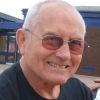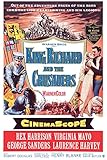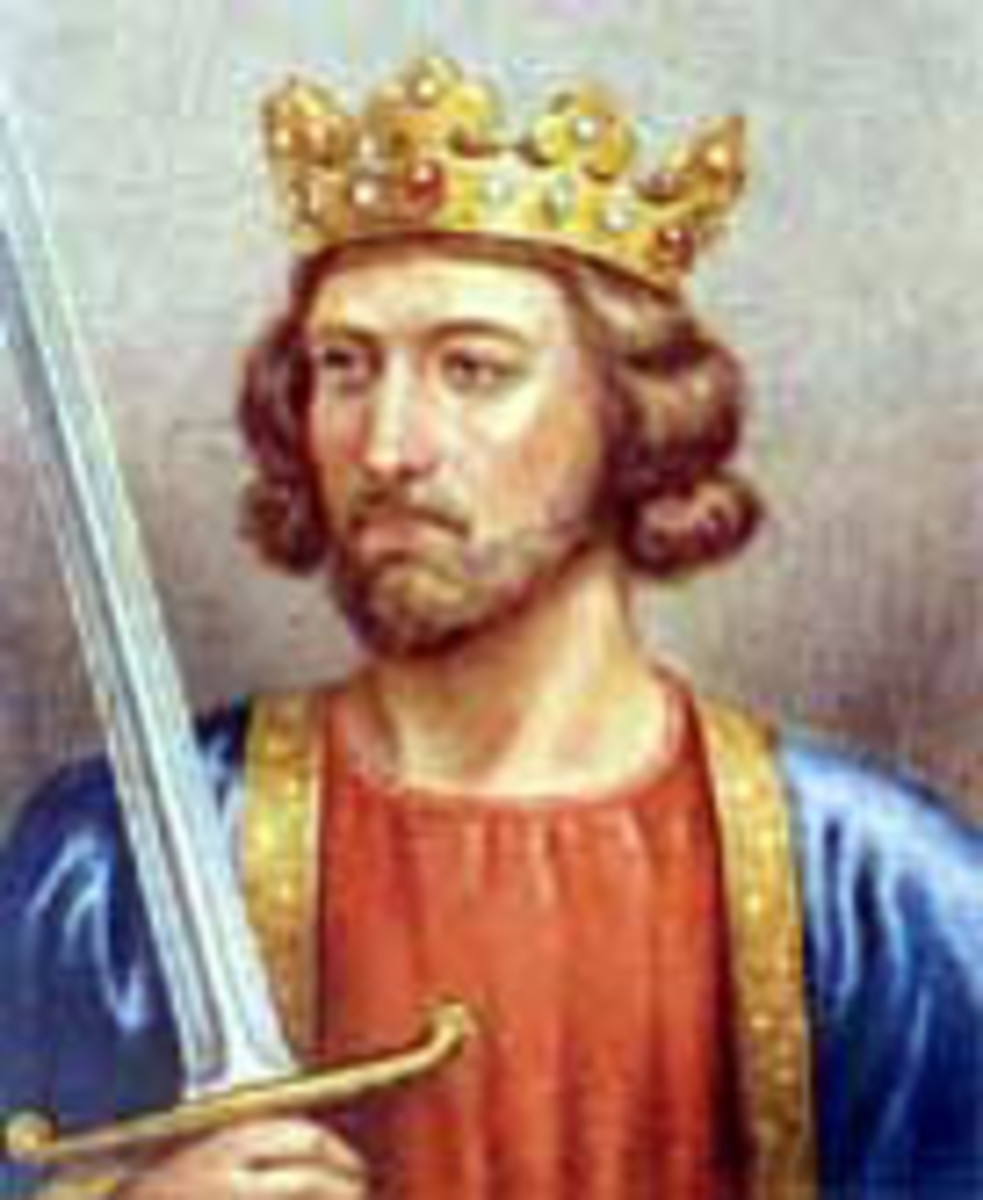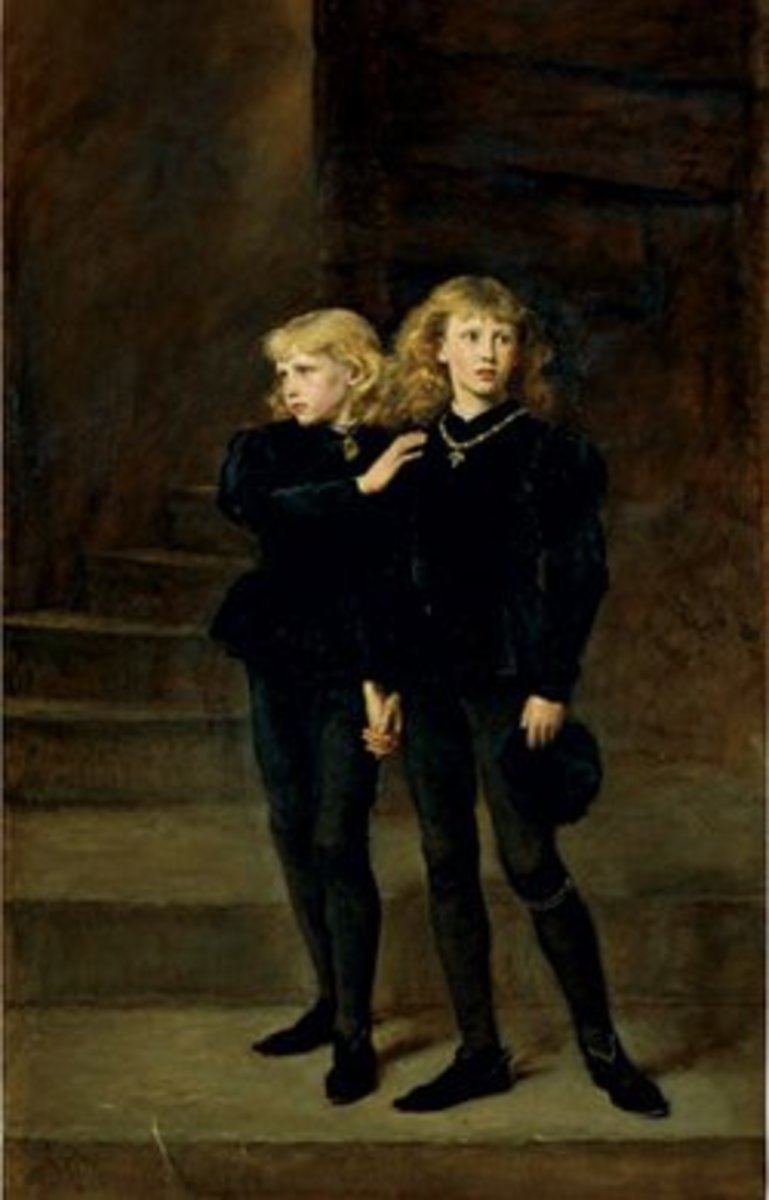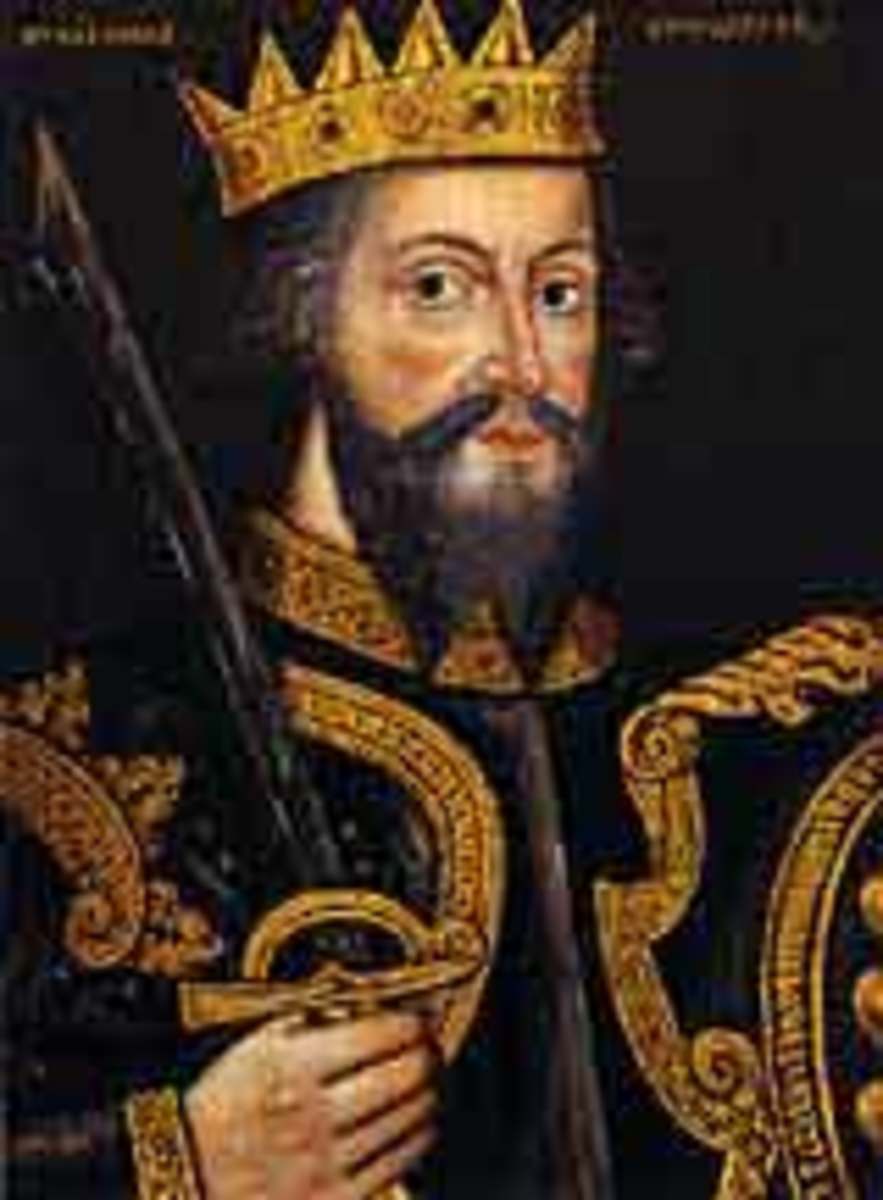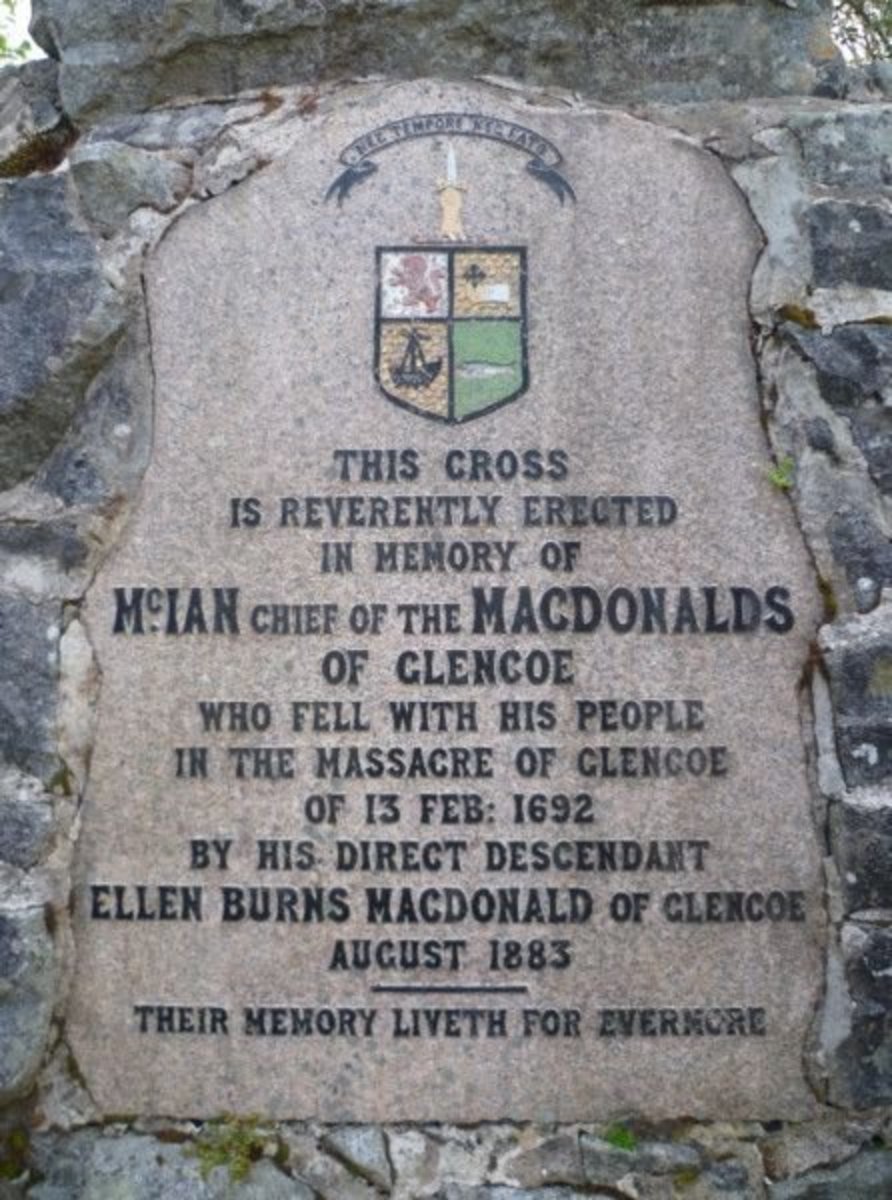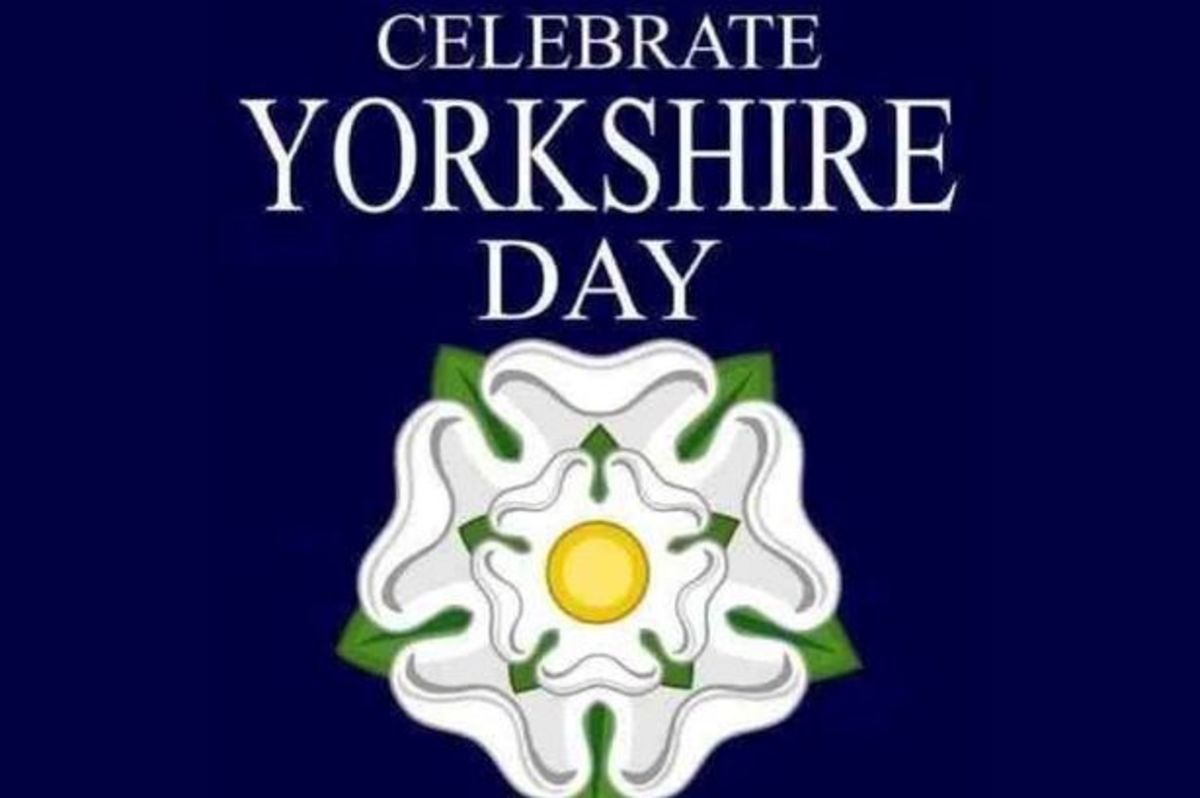- HubPages»
- Education and Science»
- History & Archaeology»
- History of Europe
Harry Hotspur
He was called Hotspur
Henry Percy, better known as Harry Hotspur from his hotheaded and rebellious nature was born on the 13th June 1364, at Spofforth Castle in Yorkshire. He was the eldest son of Henry Percy, 1st Earl of Northumberland and Margaret Neville, daughter of Baron Ralph Neville and Alice de Audley.
At the time of Harry's birth the Percy family were very wealthy people, owning great estates and manors in Yorkshire, West Sussex, Lincolnshire and Northumberland, including Alnwick castle and Warkworth castle. The Percys' were major landowners in the north of England, second only to the Duchy of Lancaster, the huge estates of John of Gaunt, the fourth son of King Edward 3rd.
Harry gained a great reputation as a warrior, fighting against the Scots and the French. A larger than life character, his impetuous behaviour and reckless fighting methods were immortalised later by William Shakespeare, when Hotspur appeared in his plays, Henry 4th and Richard 2nd. The bard cast his character as a medieval rebel seeking glory in battle at the expense of his own safety.
Warkworth Castle
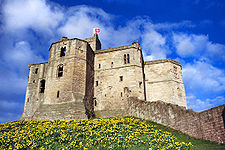
early years
When he was only nine years old, Harry Hotspur went to fight in France with his father, but although he saw plenty of action, killing and mutilating, his job was as a page to his father. This was the grounding he had which stood him in good stead for his future life as a knight, fighting battles with great enthusiasm. In the war with France, Harry's father, Henry and his brother Thomas had proven their loyalty to King Edward 3rd and John of Gaunt on many occasions. However this expedition into France with Harry in attendance proved to be catastrophic for the English army. They were defeated by French troops who would not stand and fight but chose to ambush the English in small attacks on their flanks and harassing them from the rear. John of Gaunt's ineptitude as a Commander in Chief and tactician showed him up to be what he was – totally incompetent.
Harry was knighted when he was thirteen years old by King Edward, the ailing monarch. At the same time, Richard of Bordeaux and Henry Bolingbroke, later to be Richard the second and Henry the fourth, were also knighted.
In 1378, the Scots invaded Berwick castle and gained access to it, killing the constable, Sir Robert Boynton and taking his family hostage. Harry's father, now Earl of Northumberland took Harry on his first campaign as a fighting knight. They laid seige to Berwick castle and eventually took it back from the Scots who were routed. Only two English soldiers were killed and many wounded, but the Scots lost forty-eight men. Hostilities with Scotland dominated the next few years and Harry was given the responsibility of overseeing the defences of the border. Later, in 1384 Harry Hotspur was given the job of governor of Berwick, the very town that he had helped free from the Scots. After two years of being bored in this job, Hotspur was given the opportunity to travel to Calais as it was rumoured that the French were about to lay seige to the town. The French decided not to lay seige to Calais and Hotspur was bored again, so he went on the rampage around Picardy, carrying off booty wherever it was found. As the French wouldn't fight, Harry decided to go back to England.
In 1387, King Richard, being fed up of his uncles disputes in their own pursuit of power, gathered together a number of advisers and councillors of little experience, to take the place of the feuding nobles. Dismayed by this, the Dukes of Gloucester and the Earls of Warwick and Arundel together with Henry Bolingbroke appealed to the king to re-instate their power. He ignored them. Matters reached a head and the nobles eventually fought the king's troops at the battle of Radcot Bridge in Oxfordshire where the king's men suffered defeat. This was humiliating for the king and he never forgave the people involved, including his boyhood friend, Henry Bolingbroke. As king Richard was again ruled by the nobles, he was forced to pardon them for the rebellion, but he was biding his time until he could exact revenge on them. The Duke of Gloucester then started removing the king's inexperienced advisers, by imprisoning some and beheading others.
The overthrow of King Richard
The Scots were still raiding the border towns, pillaging what they could and making off with their booty. In July 1388 it was learnt that an army of 50,000 Scots were gathering to invade England at the border. Chiefs of the Scots were the 'Black Douglases.' Sir James Douglas would lead in the attack on the east marches, Hotspur's territory, while Sir Archibald Douglas would attack the western side. Hotspur's army met the Douglas army at Otterburn and the two sides fought all night. There was great slaughter on both sides and James Douglas was killed. The Scots had the upper hand as the English had marched thirty miles to engage them while the Scots were camped and their troops were fresh. The English were routed and Hotspur was captured and held to ransom. Sir Archibald Douglas met heavy opposition at Chester and he retreated. Once he heard of Sir James's death, he marched his troops back to Scotland to re-group for future battles. Harry was ransomed in the summer of 1389, and returned to England. In 1391 he was sent to Calais, but again was bored, needing action, but the French had signed a peace treaty. He amused himself with jousting and he and his friend Henry Bolingbroke competed at the famous tourney at St. Inglevert, near Calais.
After this, Bolingbroke was sent to Prussia by his father, John of Gaunt to fight, but Hotspur was frustrated when he was made Governor of Bordeaux and had to stay in France. He kicked his heels for two years in that post, before returning to England and again taking up his post as warden of the east marches on the border of Scotland.
There was unrest in the country for the next few years and it finally reached a peak when, in 1397 King Richard arrested those who had fought against him at Radcot Bridge. Gloucester, Warwick and Arundel were tried and executed. Henry Bolingbroke was banished from the country, his titles and land forfeited. Hotspur was not involved in the Radcot Bridge affair, but as his friends and relatives were, he was starting to turn against the king, and was heard to criticise him. Word was carried to the king of this criticism, and Richard was incensed. He ordered the Percys to accompany him to Ireland, but the elder Henry Percy refused to go. Richard immediately banished both Father and Son from the country. He then departed for Ireland. When he was gone, The Percys contacted Henry Bolingbroke in France and plotted to get rid of Richard. Bolingbroke had made many friends in France and they planned to take their revenge against Richard. Bolingbroke and his army landed on the Yorkshire coast in July 1399 and they met up with the Percys. Earl Henry Percy had recruited men from all around the area and they marched to Doncaster, their army swelling on the way. King Richard's brother, the Duke of York had been left in charge of the country's defences while Richard was away, and he now sent word to Richard of the uprising. Richard landed at Milford Haven and marched north. Bolingbroke arrived at Chester and set up camp, hiding his men so that they should not be seen. When Richard arrived at Chester, the king and his representatives met Percy, Earl of Northumberland with a view to making a compromise. Percy told the king that Bolingbroke wanted only his lands and titles back, that Richard would be served by them all as king. This Richard agreed to. The royal party were then escorted towards Bolingbroke's camp and the hidden army appeared, surrounding Richard's smaller force. The king was escorted to London and imprisoned in the tower where he was forced to resign his crown.
King Richard
Rebel
Harry Hotspur was not party to this deceit, firmly believing that Bolingbroke spoke the truth and wanted only to be re-instated in England. Hotspur was betrayed not only by Bolingbroke but by his family members as well. From then on, Hotspur distrusted Bolingbroke, and that distrust grew eventually into hate of him and opposition to his being crowned King henry 4th. He continued doing his duty as warden of the northern marches, repelling the Scots invasion of the border counties, alongside his father, the Earl of Northumberland but his unrest was growing. The Earl was also losing faith in King Henry. Battles that he was fighting against the Scots were not being supported with cash from the treasury. After the battle of Homildon Hill in 1402 when English troops decimated the Scots army led by the surviving Black Douglas, Archibald, Earl Henry Percy went to London to confront the king. Cash was needed to pay the troops, and to feed them. Ransoms were being collected when opposing nobles were captured but none of the money was being distributed. Archibald Douglas was being held with other Scots nobles and the Earl wanted some of the ransom money.
The Earl went to London and faced the king, asking for money. Henry replied that he had no money and that the Earl would get nothing.
When the bad news was told to Harry Hotspur he was incensed and said that he would collect the ransom for the Black Douglas and use it to pay their expenses. King Henry was not amused! He appointed his brother-in-law, Ralph Neville, Earl of Westmoreland to the Captaincy of Roxburgh Castle which had been given to Hotspur previously, kicking Hotspur out. The situation was deteriorating further. Hotspur was summoned to Henry's court in London and he went, seething with malice, determined to have it out with his former friend. When Hotspur entered the chamber, Henry demanded to know if he'd brought the Black Douglas with him. Harsh words were exchanged when he told the king, no. The king struck him across the face with his gauntlet and drew a dagger. Hotspur shouted, 'Not here, but in the field of honour.' He was bundled out of the chamber and returned to the north in a furious rage. There was only one thing to do. Defeat Henry and remove his crown. Henry learned of the rebellion and gathered together his army to march north and to wipe out the rebels and either kill or capture Hotspur and his family members.
They met in Shrewsbury in July 1403, at Bull's Field. Hotspur's army of 7,000 to 8,000 were greatly outnumbered by Henry's 20,000. Even so, the king tried to negotiate with the rebels and sent a messenger to Hotspur to ask him to lay out his grievances so that they could discuss them and come to an amiable agreement. Hotspur refused to meet the king, but sent his uncle, Thomas Percy with a list of grievances and accusations. In it he rebuked the king for his falsehoods to King Richard, imprisoning him and starving him to death and quoted,' Thou art perjured and false.'
Henry could do nothing more and he attacked. During the battle, Hotspur fought like a demon and with a group of knights, tried to get to the king and kill him but they were repelled. After hours of furious fighting and, sweating profusely, Hotspur raised his visor to get some air, and an arrow pierced his brain and he was killed. His army was routed and those that were left after the carnage dispersed, many being killed as they fled.
The Earl of Northumberland did not join in the battle against his king, as he was lying ill at the time. When the king had his revenge, Thomas Percy was beheaded and the Earl stripped of all his titles and fined.
So ended the rebellious Harry Hotspur, Sir Henry Percy.
Death of a rebel
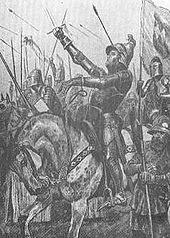
King Stephen
- King Stephen
Stephen of Blois was born in 1096 at Blois in France. He was the son of Stephen, Count of Blois and Adela, daughter of William the Conqueror. He was one of ten children, six boys and four girls. Stephen...
